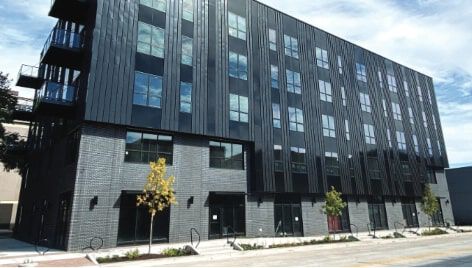Navigating the Complex Terrain of Compliance Guidelines for Network Protection in Multi-Unit Units to Guarantee Resident Security and Information Protection
Wiki Article
Within the current society, numerous individuals live in multi-dwelling units, including flat buildings and condominiums. Such places frequently share common infrastructures for online and other services. Although this setup can be convenient, it also brings up significant questions about network safety and compliance standards. Guaranteeing the security of tenants and safeguarding their data is crucial. This piece will explore the complex environment of compliance guidelines for network safety in multi-unit units, focusing on how these guidelines help keep tenants secure and secure.
One of the primary compliance standards that pertain to network security is the General Data Privacy Regulation (GDPR). This regulation is intended to protect individual information and privacy for individuals within the EU Community. Although it primarily pertains to businesses operating in the EU, its tenets can influence procedures in other regions as also. For multi-dwelling units, complying to GDPR requires implementing robust data protection protocols. This includes making sure that tenants' individual information is gathered, stored, and processed safely. By following these standards, building managers can help build confidence with residents and guarantee their information is safe from illicit intrusion.

A further significant guideline is the Healthcare Insurance Flexibility and Accountability Act (HIPAA), which protects sensitive healthcare information in the healthcare industry. In multi-unit units, especially those that offer medical services or have residents with particular medical requirements, compliance with HIPAA is essential. This requires that any health-related data collected from tenants must be kept confidential and secure. Property managers must ensure that their system systems are designed to avoid information breaches and unauthorized intrusion. By taking these steps, they not only comply with legal obligations but also foster a secure living environment for all tenants.
Alongside GDPR and HIPAA, the Credit Card Card Industry Information Protection Guidelines (PCI DSS) is another critical regulatory guideline. This standard is particularly important for multi-unit buildings that accept credit card payments for lease or amenities. PCI DSS outlines protection measures that must be in place to protect customer information. This entails securing sensitive information and regularly monitoring system safety. By following PCI DSS standards, property managers can reduce the threat of information leaks and safeguard residents' financial information, which check here is vital for maintaining their confidence and security.
Ultimately, it is crucial for multi-dwelling buildings to stay informed on local and national laws regarding system safety. Laws and standards can change, and staying aware is essential for adherence. Building administrators should frequently assess their security protocols and procedures to make sure they comply with up-to-date standards. This preventive approach not only helps in maintaining adherence but also enhances the overall security of the network. By prioritizing resident safety and information protection, multi-unit units can create a secure living environment that fosters trust and peace of mind among tenants.
To summarize, traversing the intricate environment of regulatory guidelines for network safety in multi-unit buildings is crucial for guaranteeing tenant security and information safeguarding. By comprehending and applying guidelines like GDPR, HIPAA, and PCI DSS, building administrators can establish a safe space for their tenants. Staying updated about regional laws and frequently reviewing security practices further enhances this commitment to safety. Ultimately, a strong focus on compliance not only protects residents but also builds a sense of community and trust within multi-unit units.